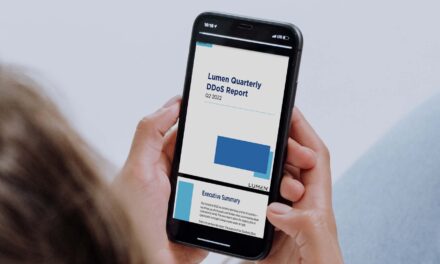As the world’s most heavily cyber-attacked country, India attracts many cybersecurity businesses hoping to fill the mindset and budget gaps.
With all the buzz about accelerated national digital transformation campaigns worldwide, what IT data management and security trends are being affected in India?
While we marvel at how the pressures of pandemic control have made even the most difficult-to-digitalize countries wake up to the dire consequences of maintaining the status quo, we also realize that what the governments think, and what the reality on the ground is, can contain a big gap.
To find out just how big a gap there is in the country, CyberSecAsia recently caught up with Nagarajan Chandrasekaran, Vice-President, Vembu Technologies, a firm that helps small- and medium-sized enterprises with backup and disaster recovery.

CybersecAsia: How far has India reached in digital transformation over the last few years? And where does the Indian data and IT security market stand currently?
Nagarajan Chandrasekaran (NC): Digital transformation (DX) efforts in India are still in the early stages. Many businesses, including SMEs as well as some enterprises, are struggling to fully implement their DX initiatives. At the other end of the spectrum, the high rate of adoption of digital lifestyles among Indians has accelerated data growth over time.
As a result, the amount of business data is exploding. India’s enterprise sectors — such as banking and financial services, information technology, information technology-enabled services, and government — are well-equipped to address their data security issues by implementing stringent data protection solutions on their IT infrastructure. Currently, these industries account for two-thirds of India’s IT security industry.
However, many SMEs in India are still not using sophisticated data security solutions to protect their business-critical data from cyberattacks, due to budget constraints.
CybersecAsia: What is the impact of the pandemic on cybersecurity sector in India? How is the recovery so far?
NC: Many small businesses simply shut down their operations in the early months of the pandemic, resulting in a significant revenue loss.
Many data centers across India suffered system failures as a result of non-maintenance during the first weeks of the lockdown. Simultaneously, many companies announced Work-From-Home (WFH) policies for their entire workforce. Data has become more vulnerable due to this. Home networks are usually not well secured against cyberattacks. As a result, data security solutions have become essential for business operations here, just as in the rest of the world.
Many businesses are more aware than ever of the importance of endpoint security and data protection solutions in maintaining IT security. Therefore the data security market continues to grow. Along with data security products, the pandemic has also accelerated the growth of OTT services, online meeting tools, collaboration applications, etc. in India. However, major industries such as aviation, tourism, and hospitality are yet to recover from the slump.
CybersecAsia: In the light of recent cyberattacks in India, how are small businesses coping with the threats and data thefts?
NC: Compared to other developing countries in the world, India is one of the top victims of cyberattacks. Every year India sees about a 30% increase in data breaches. Most individuals and small businesses were easy targets of the cyberattacks in recent times. According to a recent study, ransomware is the most common of all cyberattacks.
However, the vast majority of SMEs in India are not taking the necessary precautions to prevent data theft. Whenever I have the opportunity to speak with SMEs, I ask about their current data security policies. A majority of them said they do not have any sophisticated data protection or data security solutions, because they have never been breached.
As a result, cyberattacks against SMEs in India are common. Most SMEs, in my experience, look for data security products after they have experienced cyberattacks.
CybersecAsia: What are your aspirations for the data security market in this decade?
NC: Due to the increasing threats to business data, demand for data back-up and cybersecurity products is rapidly increasing. Every day, more than 300 cyber-attacks are reported in India. Now small businesses have also started to consider the financial implications of cyberattacks. As a result, they want to be more protected than ever before from cyberattacks.
We all know that India is a price-sensitive market, with the majority of small businesses operating on a tight budget. As a result, data security vendors are now tailoring their offerings to meet the needs of Indian SMEs.
The biggest challenge is ensuring data protection for emerging technologies as soon as they are used in a production environment. Since rising cyberattacks pose a significant threat to critical business data, businesses seek data protection as soon as they move to a new infrastructure.
We have observed that, while there exist many back-up solutions for SMEs at lower prices, the features and product stability may not meet customer expectations. As a result, we have decided to provide backup and DR solutions to SMEs on a tight budget without sacrificing functionality and product stability.

















